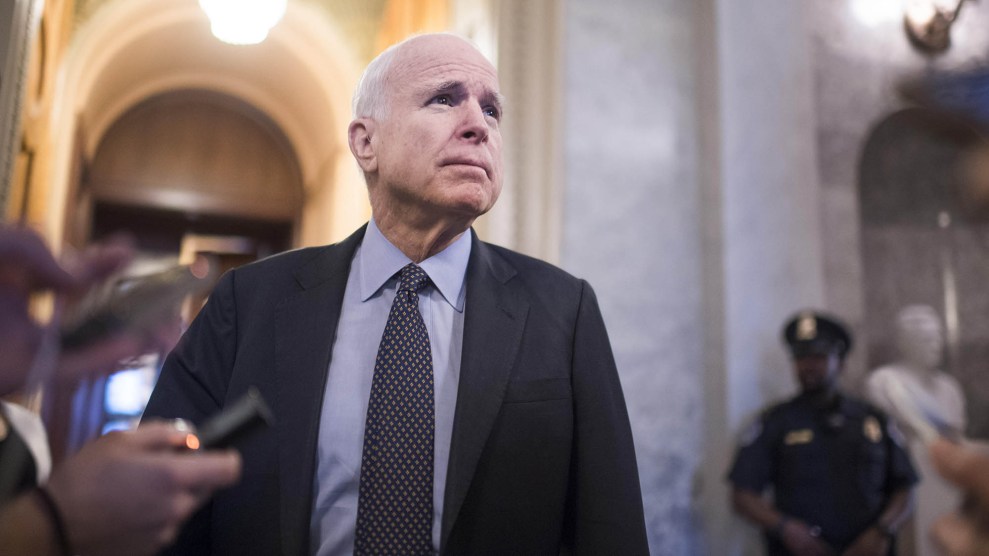
Tom Williams/ZUMA
On Thursday morning, Sen. John McCain (R-Ariz.) said he will vote for the Republican tax bill that is currently being debated on the Senate floor. McCain is one of the few Republicans who have expressed concern about the bill, and his support is a major boost to the bill’s chances of passing, which could happen as soon as this week.
In announcing his support, McCain said the bill “would directly benefit all Americans, allowing them to keep a higher percentage of what they earn.” That is incorrect. Multiple independent estimates, as well as a recently leaked analysis from Congress’ nonpartisan Joint Committee on Taxation shows that millions of Americans will pay higher taxes even before the bill’s individual cuts expire at the end of 2025. The JCT analysis found that 8 percent of Americans would immediately pay more taxes, while another 30 percent would see their tax bills stay roughly the same.
As Mother Jones has written, 26 percent of taxpayers that make between $50,000 and $75,000 would face higher tax bills after the individual cuts expire, while another 59 percent would see their tax bills stay about the same. Only 5 percent of those families would get more than $500, but 56 percent of taxpayers who make more than $1 million per year would get at least a $500 tax cut.
McCain later said that “every income bracket” would see their taxes go down on average. That is correct if the effects of repealing Obamacare’s individual mandate are excluded. With that change included, working-class families would face a tax increase under the JCT’s official estimate. Whether to count those credits is complicated. As Mother Jones has reported:
The JCT assumes many working-class families would not buy health insurance if the Obamacare mandate is repealed. As a result, those families would not receive a tax credit for buying health insurance. The JCT counts that as a tax increase even though it doesn’t affect how much, if any, federal income tax they pay. As a result, JCT’s estimate shows that the Senate tax plan would almost immediately increase taxes for people who make less than $30,000. At a hearing on Thursday, Senate Republicans said that it was wrong to consider that a tax hike.
Either way, there is no doubt that tens of millions of Americans would see their taxes go up if the individual cuts expire. Republicans promise that won’t happen, but there’s no guarantee that future members of Congress will agree.
Below is McCain’s full statement.
John McCain’s statement endorsing the tax bill. pic.twitter.com/apJX599EvH
— Sahil Kapur (@sahilkapur) November 30, 2017













